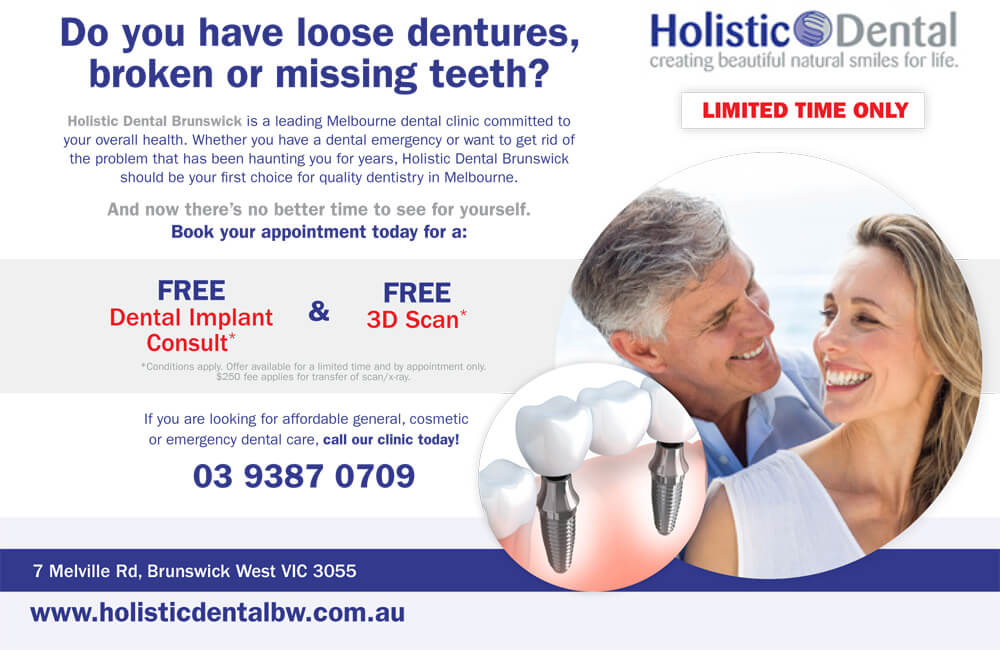Dental Implants Brunswick, Teeth Implants in Brunswick
If you are self-conscious because you have missing teeth, wear dentures that are uncomfortable or don’t want to have good tooth structure removed to make a bridge, talk to your Holistic Dental Practitioner to see if dental implants are an option for you. Dental Implants have changed the face of dentistry over the last 25 years. The practice of implant dentistry requires expertise in planning, surgery and tooth restoration; it is as much about art and experience as it is about science. This site will help provide you with the knowledge you need to make informed choices in consultation with your dental health professionals.
What are Dental Implants?
A dental implant is actually a replacement for the root or roots of a tooth. Like tooth roots, dental implants are secured in the jawbone and are not visible once surgically placed. They are used to secure crowns (the parts of teeth seen in the mouth), bridgework or dentures by a variety of means. They are made of titanium, which is lightweight, strong and biocompatible, which means that it is not rejected by the body. Titanium and titanium alloys are the most widely used metals in both dental and other bone implants, such as orthopedic joint replacements. Dental implants have the highest success rate of any implanted surgical device.
When and why do we use Dental Implants?
- Failed root canal treatments.
- Inadequate root length.
- Congenitally (hereditary) missing teeth.
- Periodontally involved (mobile or loose) teeth.
- Large carious (decay) lesions.
- Tooth fractures.
- Missing teeth.
- No posterior abutment (anchor) teeth.
- To preserve the adjacent natural tooth structure. No ‘grinding down’ other good teeth.
- To stabilize, or retain, partial or complete dentures.
- To eliminate removable appliances and replace them with implant-supported (fixed) crowns or bridges
What are the Benefits of Dental Implants?
Dental Implants do not decay. Implants are cost effective when taking into account the functioning life of the implant. In some cases, the implant may not be successful because it didn’t bond to the bone. Some dental implants do fail and there can be bone loss associated with ailing/failing implants. However, the present success rate for dental implants is quite high.





















